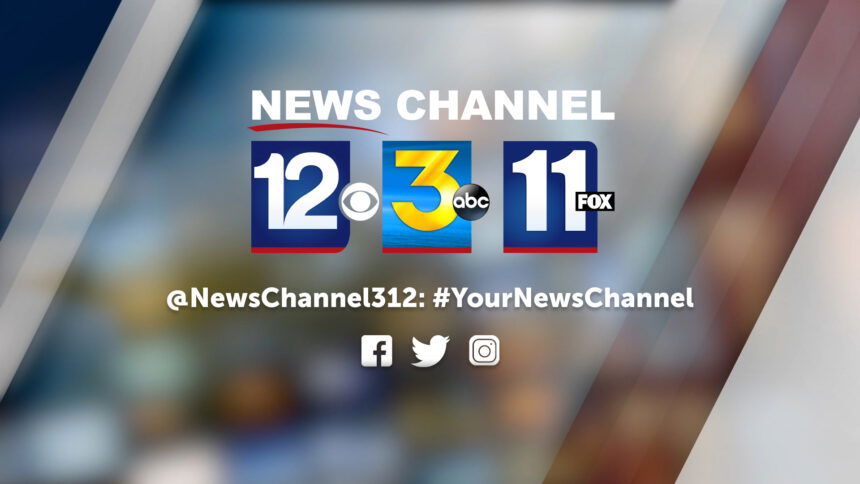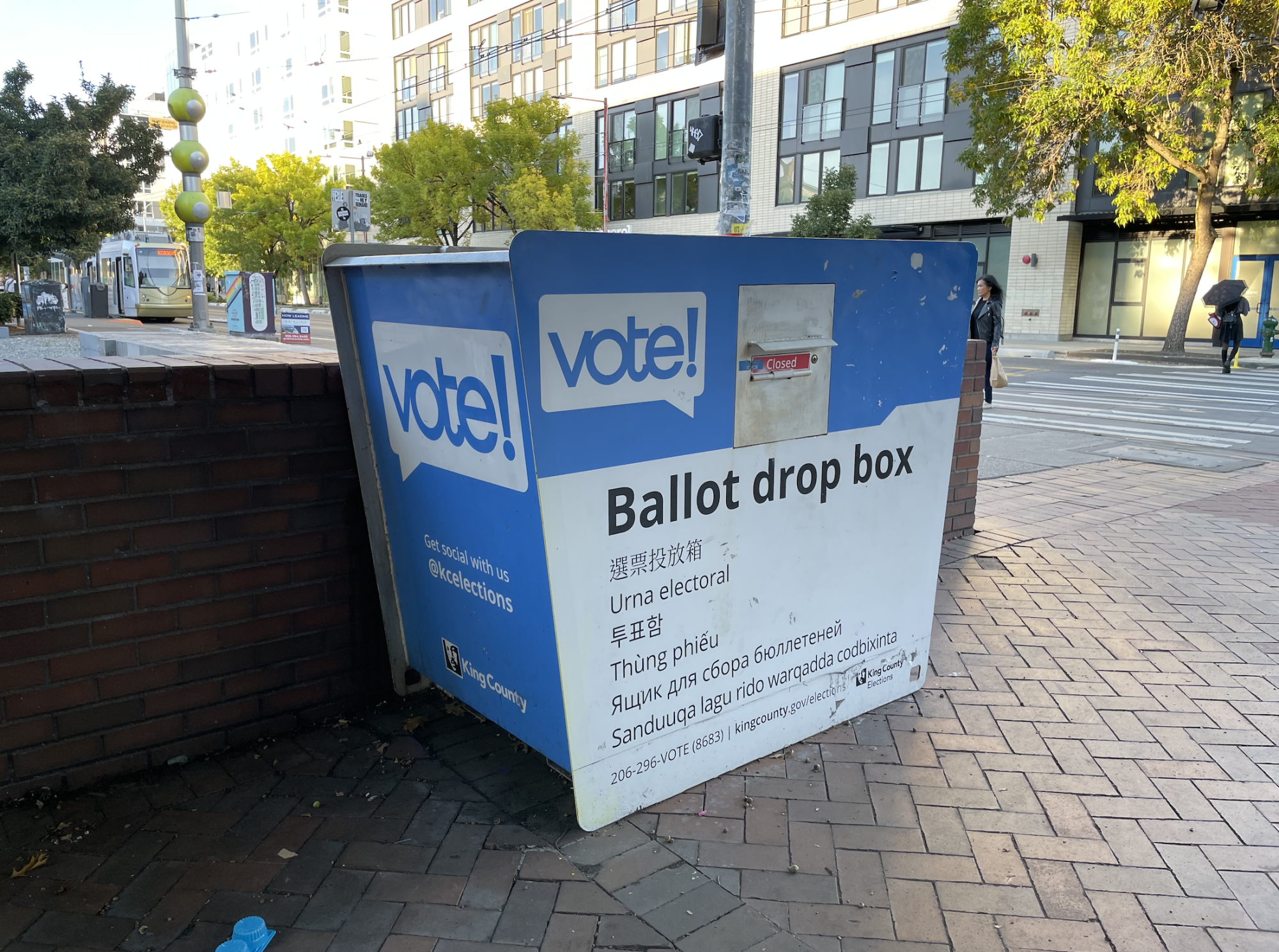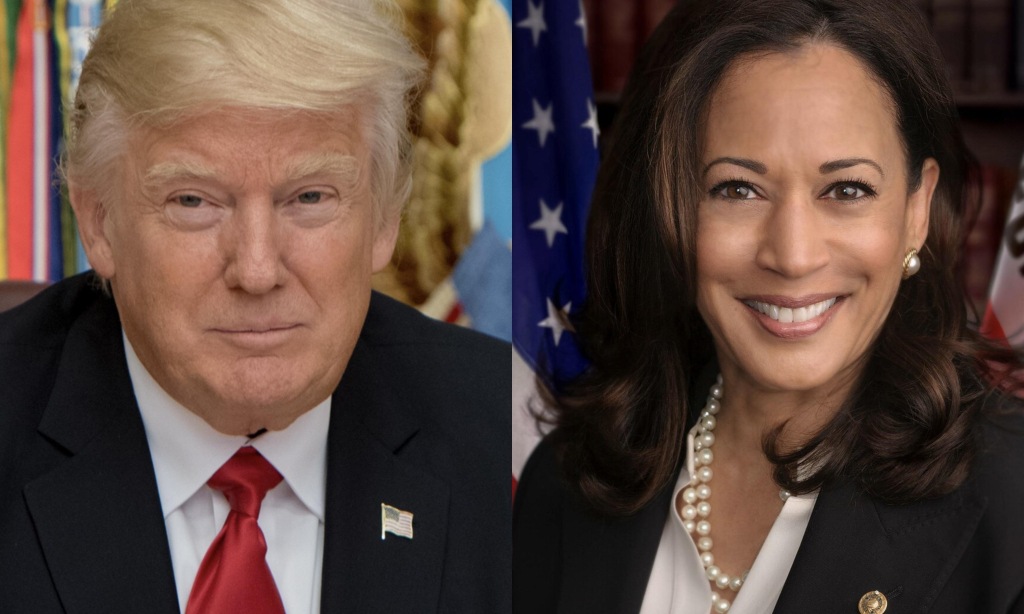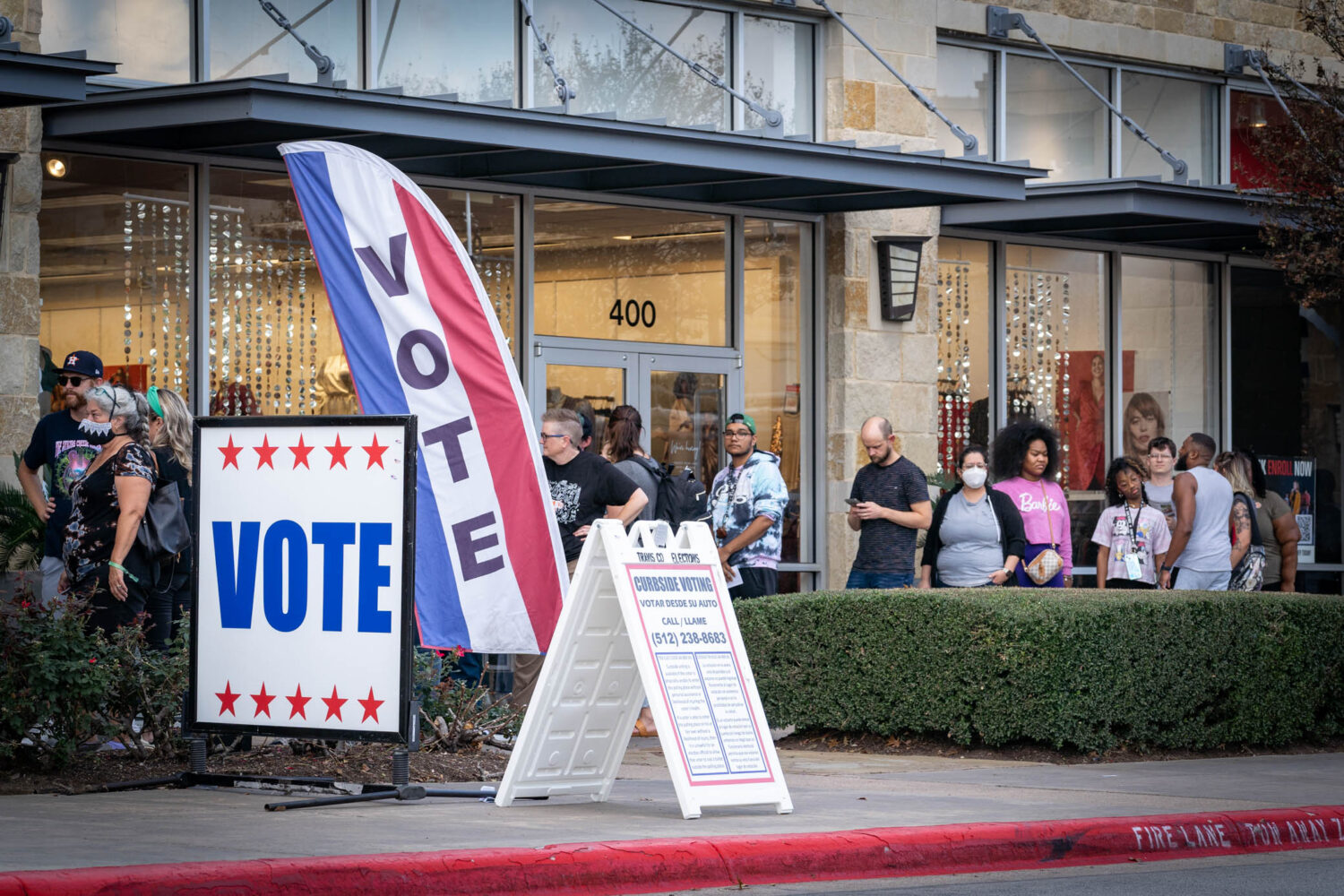The first president who decided not to seek re-election in over 50 years. An assassination attempt that missed by inches. A record $81 million raised in a campaign’s first 24 hours. These are the storylines of the turbulent 2024 U.S. Presidential Election.
A Summer of Political Uncertainty
The presidential election has changed dramatically since the end of the 2023-24 school year. At that time, incumbent President Joe Biden (81 years old) was seeking re-election against former President Donald Trump (78), the two oldest presidential candidates in history. Trump’s presidential immunity case, which would give him broad immunity from “official” acts committed in office, had not been decided yet. Robert Kennedy Jr. was still a third-party candidate running for president.
Nearly a month after spring quarter’s conclusion, the current election scene began to unfold following Biden’s poor performance June 27 in the first presidential debate. The debate performance left many prominent Democrats to call for Biden to drop out of the race, which he initially refused.
Téa’Ayanna Garvey, a fourth-year pre-health anthropology major, described feeling “used to” the two candidates at this time.
“It felt like a pretty mundane race to me,” Garvey said. “I had already seen the [candidates’] antics going on before I could even vote.”
The month of July continued to be chaotic for the candidates, especially Trump. Just days before the Republican National Convention (RNC), Trump was shot in the ear in an assassination attempt at a rally in Pennsylvania. After sustaining minor injuries, he spoke at the RNC to announce his pick for vice president, JD Vance.
Biden’s July followed a similarly chaotic tone. Calls for him to step out of the presidential race grew as the month went on, including statements from Chuck Schumer and Nancy Pelosi. On July 21, Biden announced on social media that he had decided to step out of the race, making him the first president eligible for re-election to drop out since Lyndon Johnson in 1968.
Patrick Shoettmer, a political science professor at Seattle University, says that he believes Biden’s demise was similar to Johnson’s.
“The particular combination of events in a lot of ways resembles 1968,” Shoettmer said. “Biden certainly dropped out later in the election cycle than Lyndon Johnson did in 1968, but it was similar in which people lost faith in him.”
Just 30 minutes after he announced his exit from the 2024 presidential race, Biden endorsed Vice President Kamala Harris to succeed him in the election. While this is not the first time a president has dropped out of re-election, it certainly is the first time it has occurred in the lifetime of current Seattle U students.
Gen-Z Voters and a Tale of Two Campaigns
Although Trump and Harris have run their campaigns on very different platforms, they have been vying for similar things — including the Gen-Z vote. Both have utilized media platforms to reach young voters, with Harris using TikTok and Instagram and Trump using Truth Social (his social media platform) and appearing on podcasts.
Shoettmer says that winning the Gen-Z vote is especially important for Democrats.
“I think that’s usually important for a Democrat to do because Democrats depend on the youth vote, but they don’t try to overly depend on it because… voter turnout for 18-29-year-olds [only] hovers around 40%,” Shoettmer said. “One reason in particular it might be important for Harris is that we see Gen-Z voters, specifically Gen-Z women, overwhelmingly in support of Democrats than other age groups and gender groups.”
While Gen-Z women are the most Democratic-leaning age block, the same cannot be said for Gen-Z men. In the 2022 midterm elections, 72% of 18-29 year old women voted for Democrats in house races. While the majority of Gen-Z men voted for Democrats during the midterms (54%), the disparity is expected to further grow in 2024.
Ren Higareda, a third-year political science major, believes that this disparity is in-line with modern political trends.
“That’s really crazy, but it makes sense to me. Donald Trump and his whole [candidacy is] very anti-feminism,” Higareda said. “It doesn’t surprise me that no matter who the candidate is, it’s going to be women voting for the [Democrats].”
Shoettmer noted that a potential reason that Gen-Z has a polling disparity is due to Trump’s target audience of young male voters.
“[Trump’s] been making his pitch… You see him making his appeal on podcasts, he’s really leaning into what some people call the ‘manosphere,’” Shoettmer noted. “Gen-Z by far [has] the biggest [polling] gap. Most Gen-Z women are going to wind up voting democratic, most Gen-Z men right now, according to the polling we have right now, are going to vote [for] Trump.”
Trump’s journey into the “manosphere” has included appearing on podcasts and livestreams. Trump has joined Adin Ross, a Kick streamer popular with Gen-Z men, on a livestream. He has also sat down for podcasts with Theo Von and Lex Fridman and signaled interest in collaborating with Joe Rogan, all names popular amongst young men.
Although Trump is trying to appeal to young voters, Shoettmer believes that he is focusing more on targeting his base rather than trying to reel new supporters in.
“We see Trump making a play to Gen-Z as an extension of his overall campaign, which is less about reaching out to people who might be on the fence about him and more about trying to drive up turnout for people who already support him,” Shoettmer said. “So we see him going on podcasts that have a demographic that [supports him] and he’s trying to juice them up and make sure they come out and vote for him.”
On the Democrat side, Harris’ campaign has been tapping into her base as well. The campaign’s presence on TikTok and Instagram has been felt by many Seattle U students. One reason Harris’ team has been able to keep up with many Gen-Z trends is because of a celebrity endorsement. Singer Charli XCX, whose new album “brat” has taken the world by storm, shouted out Harris in a tweet saying “kamala IS brat.” While the word “brat” may not seem like a compliment, it has become an affectionate term among Gen-Z. Charli XCX’s tweet took Kamala from an intangible political figure and gave her the status of a relatable, chaotic internet it-girl.
Although Téa’Ayanna Garvey hadn’t seen the “Kamala is brat” trend before, she understood where it came from.
“Hearing it now, Kamala is brat,” Garvey stated. “I’m thinking of a go-getter, gets it done, walks into the room and commands attention.”
Regardless of political affiliation, Garvey believes that Harris’ rise to becoming the Democratic nominee for president should be celebrated.
“Knowing that [Harris] could be the first female president of the United States, the first Black female president, the first South Asian American president, those things, regardless of my political party, the young black girl in me is so excited to see that she is able to be the candidate who is on the ballot. It’s so fulfilling to see that.”
Overall, the Harris campaign has made historic headway. In the two months since Biden dropped out, the campaign has set numerous fundraising records to become the most well-funded political campaign in US history. According to AP News, Harris raised $81 million within just 24 hours of Biden stepping down, a record. In the first month of her campaign, Harris raised an astonishing $540 million, in part thanks to a massive fundraising haul during the Democratic National Convention (DNC).
Student Involvement in the 2024 Election
The Seattle U community is gearing up for election day with just under two months to go. Many students are preparing to vote — some even for the first time. Certain issues Seattle U students have flagged as being important to them this election include abortion, a ceasefire in Gaza, immigration and gun control.
Ren Higareda is excited to vote for the first time and believes that Gen-Z will be a key factor in deciding the outcome of this election.
“A lot of professors have said [to me] ‘Oh, Gen-Z will not vote, they will talk loud but they won’t act,” Higareda said. “But I think that’s the opposite if anything, especially with this election coming up. I think Gen-Z will vote even more than they have before because they’re more educated and have more progressive ideas [than in 2020].”
Garvey, who is voting for the second time, also expressed excitement in voting during this election.
“I’m feeling really excited to vote because I’m quite confident in where I stand as far as the changes that I want to see,” she said. “Looking at all the presidents since I’ve been born, all the elections I’ve seen, this is a very confident choice for me.”
While many students are preparing to vote, some are even preparing to help people vote. The Student Government of Seattle University (SGSU) is planning on providing the Seattle U community with voting resources to improve voter turnout. While SGSU is in the planning stages of this initiative, the organization is hoping to table in the student center and provide students with resources to get registered to vote.
Sophia Cofinas, SGSU’s president wrote in an email to The Spectator:
“The priorities that SGSU has are to get students involved and educated on their rights as voters. Our hope is that every student at Seattle University understands the importance of exercising their right to vote, understands how to get registered, and understands all the elections that pertain to them.”
Although not unprecedented, the 2024 presidential election is shaping up to be historic. In the end, it might just be the votes of Gen-Z that determine the race.
To register to vote in Washington, visit Washington.gov.













